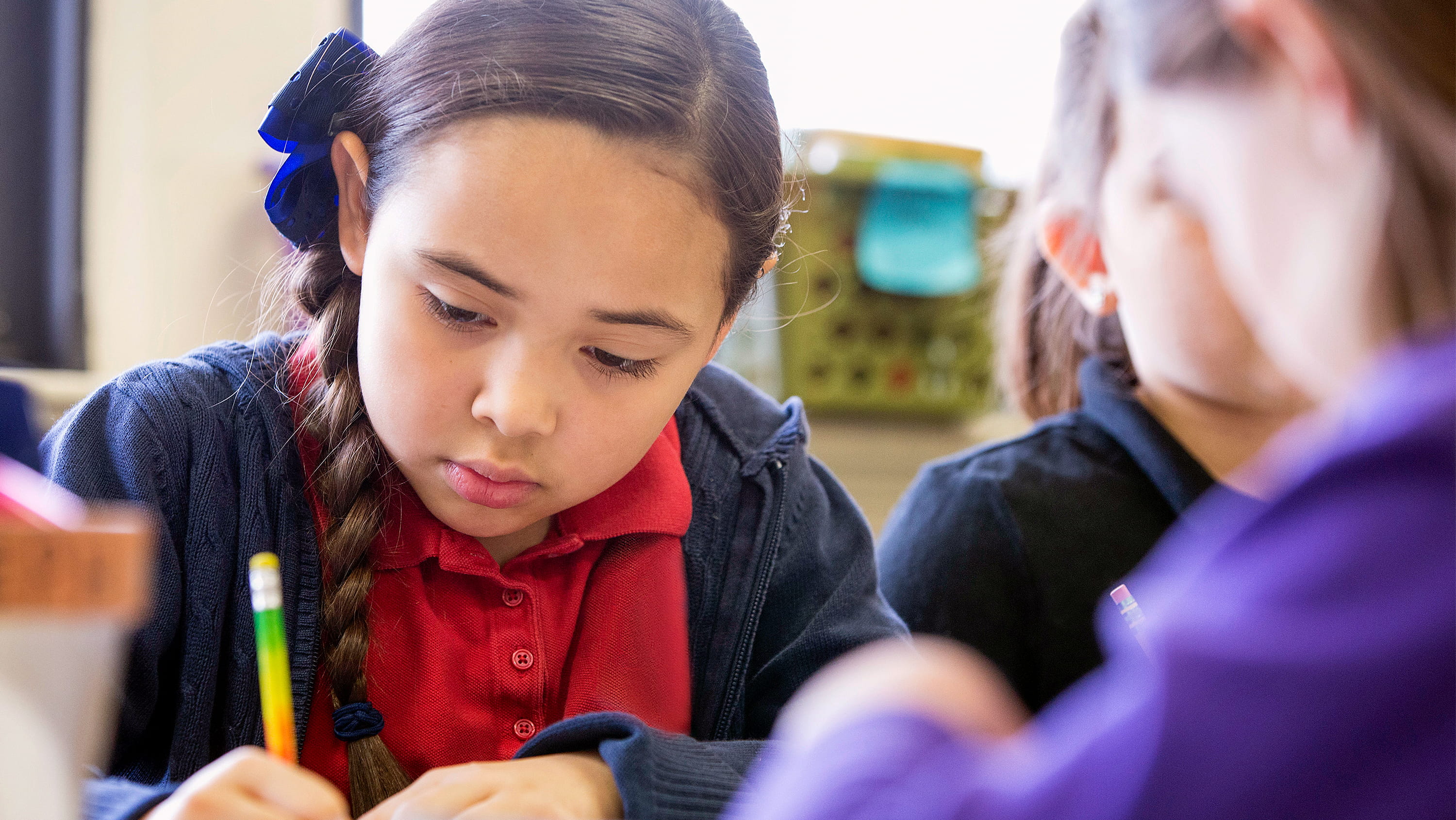A University of Alberta researcher is leading a multi-province project to ensure that Indigenous, Black and Chinese Canadian elementary students have access to in-school mental health resources that meet their needs.
In Canada, about one in five children and youth (aged four to 17) experiences significant mental health problems that require professional care. The COVID-19 pandemic exacerbated the problems, with increases in the number of children experiencing anxiety, stress and even major depressive disorders, according to Yifeng Wei, an assistant professor in the Department of Psychiatry.
Indigenous, Black and Chinese Canadian children and youth are particularly at risk, says Wei, who is a member of the Women and Children’s Health Research Institute (WCHRI) and the Neuroscience and Mental Health Institute. She says schools are the ideal place for children to learn mental health literacy because that’s where they spend much of their daily time.
“When we intervene early, we get better outcomes,” Wei says. “If we teach kids how to maintain good mental health using evidence-based strategies, they are better off later in their lives.”
Wei was one of six U of A researchers who recently won the first Strategic Catalyst Awards from One Child Every Child, a new national organization focused on child health and wellness research.
Developing inclusive and relevant resources
Indigenous youth in Canada experience major depressive disorders at twice the rate of other young Canadians.
Although there is little epidemiological information about the prevalence of mental disorders among young Black Canadians, in the United States Black youth are more likely to be diagnosed with major depressive disorder than their white counterparts and six times more likely to die by suicide due to their depression.
While children from Chinese Canadian backgrounds typically demonstrate better mental health than other populations, when they do need help, their families are less likely to reach out to a mental health professional.
Wei was awarded $200,000 for a three-year project to culturally adapt and evaluate the Elementary Mental Health Literacy Resource (EMHLR) intervention to ensure that its strategies, delivery formats and lesson plans are inclusive and relevant for underrepresented groups of children and youth. Students and teachers in Alberta, British Columbia, New Brunswick and Nova Scotia will be involved in the project.
This work builds on previous research Wei has done on child and youth mental health, some of it funded by the Stollery Children’s Hospital Foundation through WCHRI.
Overcoming barriers
Wei says most children and youth with mental health problems don’t get the professional help they need, no matter what their ethnicity. The barriers include lack of knowledge among parents and caregivers, and negative opinions and stereotypes about people (even themselves) with mental health problems. Other problems pile on, such as limited access to care, and social and cultural factors preventing people from accessing care when it is available.
Wei worked with Alberta Health Services, school boards, teachers and youth representatives to develop the EMHLR program over the last four years. It offers interactive, classroom-ready modules to teach mental health literacy to students in grades 4 to 6. Mental health literacy includes knowledge about mental health and mental disorders, strategies to maintain good mental health, stigma reduction and information about where and when to seek help.

